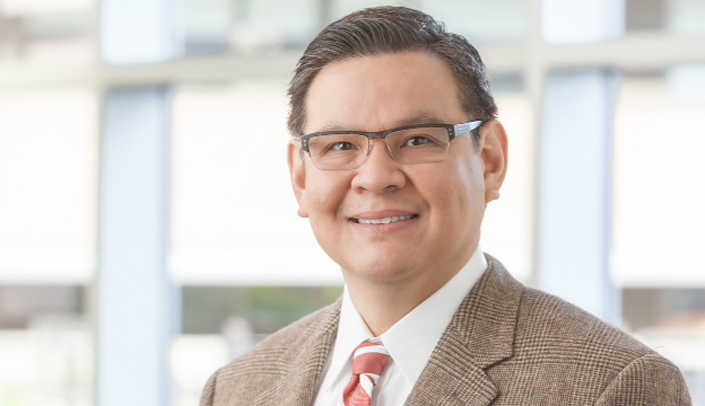Applications are currently being accepted for the Clinical Translational Research-Mentored Scholars Program (CTR-MSP), a research training and mentoring program for faculty interested in becoming independent clinical/translational researchers and leaders.
|
“This program has proven to be an outstanding resource for developing UNMC faculty into independent investigators, as well as networking across the campus,” said Jennifer Larsen, M.D., vice chancellor for research and director of the Clinical and Translational Research Center (CCTR). “Graduates from this program have moved on to new leadership positions here and at other institutions and already serve as our ‘next generation’ of translational research leaders.”
Fausto Loberiza, M.D., co-program director of the CTR-MSP and professor of internal medicine — oncology/hematology, said the program has attracted junior faculty from the colleges of medicine, nursing and pharmacy at the assistant professor level.
“They have M.D.s or Ph.D.s and already have some expertise in clinical medicine but need mentored research training,” Dr. Loberiza said.
The program, open only to junior faculty from any UNMC college or institute, provides the multidisciplinary didactic education, mentoring, and practical training so that scholars planning a career in clinical translational research will acquire the skills to design, implement, and report ethically sound, extramurally funded clinical translational research.
In eight years, 20 faculty scholars have entered the program and 10 have completed a master’s degree in clinical translational research through the Medical Sciences Interdepartmental Area (MSIA) program. Three are pursuing doctorate studies. While salary support is not provided currently, scholars can apply for grants of $25,000 to support their pilot studies to increase their ability to compete for extramural grants.
“The program has been a tremendous help,” said Vikas Gulati, M.D., an assistant professor of ophthalmology and a second-ear scholar. “For example, while I know the science behind glaucoma, I had little experience in writing a grant. The program has proven to be the most important step I took in enhancing my research skills and provides interdisciplinary exposure to the many facets of clinical and translational research.”
Dr. Gulati recently received a notice of award for a Career Development Award (K23) from the National Institutes of Health.
“This program gave me the tools to write a competitive grant and the didactic training fits right into my educational plan,” he said. “I strongly recommend the program to all faculty.”
